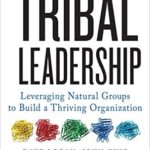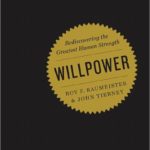What Great Salespeople Do
Michael Bosworth and Ben Zoldan
People decide who to buy from as much as what to buy.
People prefer to do business with people like themselves.
Selling is a social endeavor involving interpersonal relationships.
A person’s effectiveness as a communicator has a direct impact on his or her effectiveness selling.
The best salespeople communicate in a way that gets people to share information about themselves; fosters openness to new ideas; and inspires others to take action (i.e., to buy).
Share real stories. Show vulnerability. Be authentic. Listen with empathy. Really listen.
The old paradigm was based on logic, reason, data, and stats. Intuition, emotion, and gut feel went out the door. Be a romantic, an artist. (Think Zen and the Art of Motorcycle Maintenance)
We are not thinking machines, we are feeling machines that think. Tony Robbins said, “emotion is the force of life.”
Left brain = logical. Right brain = emotion. Solving a customer’s problem is only a small part of the story.
When we allow ourselves to be seen—really seen—we create the potential for emotional connection. “Go first” and people psychologically mirror your actions. We don’t connect with perfection. We connect with people who’ve been there.
Until you break through that veneer of bullshit you have no chance of selling anything.
“Once upon a time” instantly relaxes people.
The basics of a story: the setting, the complication, the turning point, the resolution. But also each story must have a point. Start with “Why?”
Have 3 story types in your repertoire:
1. Who I Am story
2. Who I Represent story
3. Who I’ve Helped story
The way emotion is conveyed is more important than the message. Nonverbal cues are keys to this emotion. Bush v Clinton in the 1992 national presidential debate. Clinton won the debate and presidency because he empathized with the question asker. (Bush checked his watch)
Begin sales calls by offering a quick agenda, telling the buyer what your plan is: “What I’d like to do today is start by sharing my story with you. I’m interested in hearing yours too, and then we can decide where to go from there. Sound good?”
Be an empathetic listener. Calvin Coolidge once said, “No one ever listened themselves out of a job.”
A listening block is a behavior that hinders effective communication by preventing one person from truly listening to another person. Such behaviors include rehearsing what you’re going to say next, judging the speaker or her statements, placating the speaker, sparring with the speaker, mind reading, daydreaming, advising the speaker, derailing the conversation, insisting on being right, premature elaboration.
Sellers without expertise actually made more sales but peaked at 18 months because they had become experts. They prematurely answered the client’s questions without letting them go through the sales process.
You listen into people’s eyes. The purest form of listening is to listen without memory or desire.
1. Build your story ladder.
2. Build your Who I Am story.
3. Build your Who I Represent story.
4. Build your Who I’ve Helped story.
5. Tend a story.
6. Share your story.

 Willpower – Roy Baumeister
Willpower – Roy Baumeister